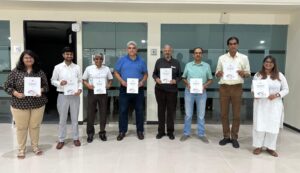New Guidelines For Coaching Centres: No Enrolling Students Below 16; Check Penalties, Study hours, Fee Structure Details

New Guidelines For Coaching Centres: No Enrolling Students Below 16; Check Penalties, Study hours, Fee Structure Details
The “Guidelines for Registration and Regulation of Coaching Center 2024” have been introduced by the Department of Higher Education in the Ministry of Education of the Government of India.
The main goals are to provide a framework for the licensing and oversight of coaching centers, suggest minimal standards for their operations, safeguard the interests of enrolled students, promote co-curricular learning for holistic development, and offer career counseling and psychological services for students’ mental health.
These guidelines address issues like outrageous fees, student stress leading to suicides, and various malpractices that are becoming more and more prevalent in relation to unregulated private coaching centers. Examples of these difficulties have been extensively covered by the media and brought up in parliamentary discussions and debates. It is important to note, though, that State/UT governments are ultimately in charge of regulating +2 level education, and these guidelines are meant to assist and guide them in making sure that coaching centers are run in an ethical and successful manner.
According to guidelines, a “coaching center” is any facility, whether owned, operated, or managed by an individual, that offers academic support to more than fifty students at the school, college, or university level as well as coaching for study programs and competitive exams.
Below are the new rules for coaching centres:
- Make misleading promises or guarantees of ranks or good marks to parents/students for enrolling them in the coaching centre.
- Enroll students below 16 years of age; student enrollment should only occur after the secondary school examination.
- Publish or be involved in the publication of any misleading advertisement related to claims, directly or indirectly, regarding the quality of coaching, facilities offered, or the results obtained by the coaching centre or its students.
- Be registered if it has less than the minimum space requirement per student.
The centers must comply with the prescribed forms, fees, and document requirements outlined by the relevant government in order to submit applications for registration to the competent authority within their local jurisdiction. Notably, individual registration applications are required for each branch of a coaching center that has multiple locations because each branch is regarded as a separate entity.
Transparency is prioritized, and coaching centers are required to keep an updated website with details on the courses, curriculum, duration, credentials of tutors, hostel amenities, and costs.
Different course tuition costs must be reasonable and fair, and thorough receipts must be given. Information about courses, duration, classes, tutorials, hostel facilities, fees, exit policies, and fee refund procedures should all be included in a thorough prospectus that is prominently displayed.
If a student withdraws during the course, they must receive a prorated refund within 10 days. Any increase in fees during the course of the instruction is strictly forbidden. This holds true for both course fees and costs associated with the hostel.
Each student in a class must have at least one square meter allotted to them by coaching centers. Following building and fire safety codes and obtaining Fire and Building Safety Certificates are required. It’s crucial to have adequate ventilation, electricity, lighting arrangements and security measures. In addition, the coaching center needs to have medical support, a first aid kit, and CCTV cameras.
To guarantee consistent attendance, classes shouldn’t take place during school hours. The schedule for the curriculum should give students time to unwind and recover. Tutors and students must take a weekly vacation. In order to maintain a healthy teacher-student ratio, class sizes should be considered.
Complaints against coaching centers can be made by students, parents, tutors, or staff members; coaching centers can also file complaints against students or parents. The appropriate government will either form an inquiry committee or the competent authority will decide these complaints within thirty days.
The coaching center will be penalized Rs 25,000 for the first infraction, Rs 1 lakh for a second, and registration revocation for any further infractions if it violates any terms or conditions of registration or general requirements.
Cancellation of registration of coaching centers :
The certificate of registration granted to a coaching centre may be canceled at any time if the competent authority is satisfied that the centre has violated any of the guidelines’ provisions or terms and conditions of registration.
However, the competent authority must provide the certificate holder with a reasonable opportunity to present their case before making such a decision.The government has initiated measures in alignment with the National Education Policy (NEP) 2020, addressing the Common University Entrance Test (CUET), conducting entrance examinations in 13 regional languages, expanding the number of seats in Higher Education Institutions (HEIs), and establishing high-quality Higher Education Institutions.
To assist students in preparing for NEET (UG) and JEE (Main) entrance examinations, the National Testing Agency (NTA) has launched the ‘National Test Abhyas’ Mobile App, providing candidates with access to high-quality mock tests online free of charge.









